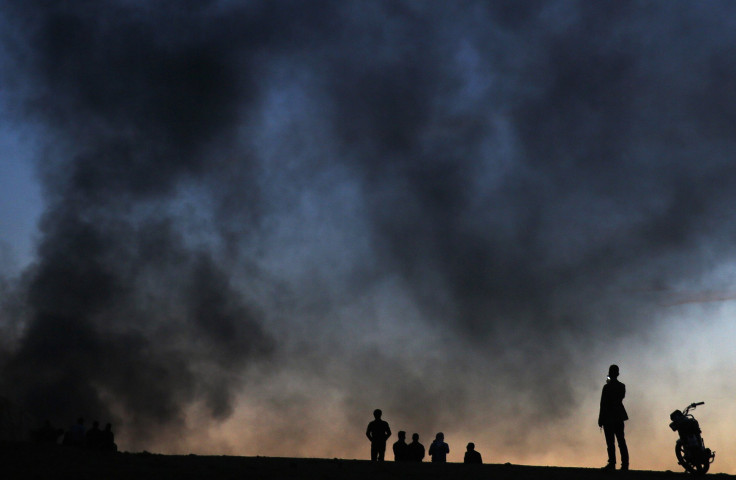Kobani Death Toll Crosses 800 As Kurds Await Reinforcements From Iraq

The protracted battle for control of the Syrian border town of Kobani has so far claimed over 800 lives, the Syrian Observatory for Human Rights said late on Sunday. At least 21 Kurdish civilians have also been killed in Kobani since Sept. 16, according to the Observatory.
In the last 40 days of fighting, at least 480 militants of the Islamic State group and over 300 Kurdish fighters have reportedly been killed. The observatory added that the real number of casualties could be twice its estimate.
“There is absolute secrecy about the number of casualties and it is difficult to access many areas and villages that have witnessed violent clashes and bombardment by the two sides,” the Observatory said.
Kurdish forces, assisted by airstrikes from the United States-led coalition, have been holding out for weeks against a concerted assault by militants of the Islamic State group on Kobani, which has become a focal point of the battle against ISIS' advance in the region.
Idriss Nassan, a local Kurdish official, told The Associated Press, or AP, that on Sunday, fighting was concentrated on the western outskirts of the town, near the strategic Tal Shair hill, which was recently recaptured by Kurdish fighters.
“The units are advancing slowly on the eastern and southern fronts,” Nassan reportedly said late on Sunday, adding that the situation was “relatively calm.”
Kurdish fighters in Kobani are also awaiting the arrival of Iraqi peshmerga forces, which are “ready to depart as soon as a timetable had been finalized with Ankara and Kurds in Syria,” Fuad Hussein, the chief of staff to the president of Iraqi Kurdistan, told Reuters.
A spokesperson for the Kurdistan Regional Government told Reuters that the peshmerga, who have also been battling ISIS militants in Iraq’s Anbar province, would be deployed to Kobani to support Syrian Kurdish forces. The move follows a decision by Turkey to allow the Kurdish peshmerga through its borders so they can travel to Kobani.
“Primarily, it will be a back-up support with artillery and other weapons,” Safeen Dizayee reportedly said. “It will not be combat troops as such, at this point anyway.”
© Copyright IBTimes 2024. All rights reserved.






















